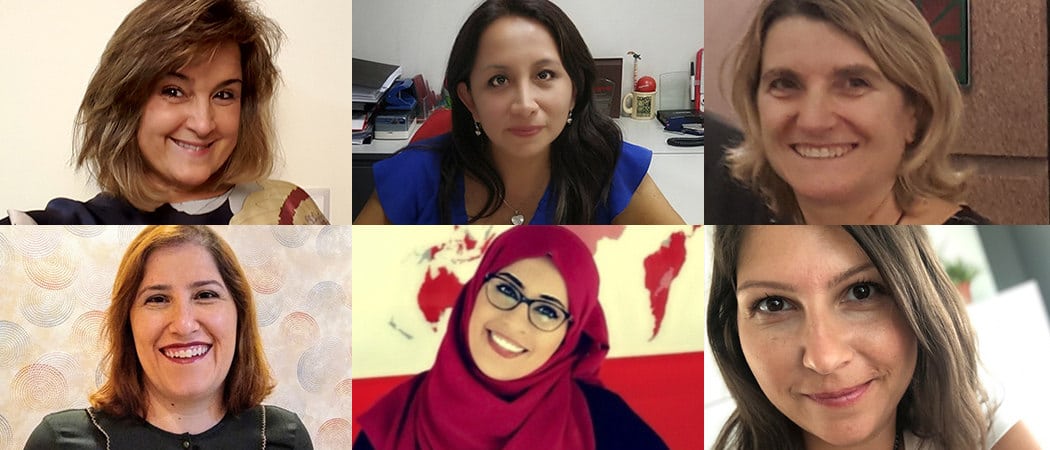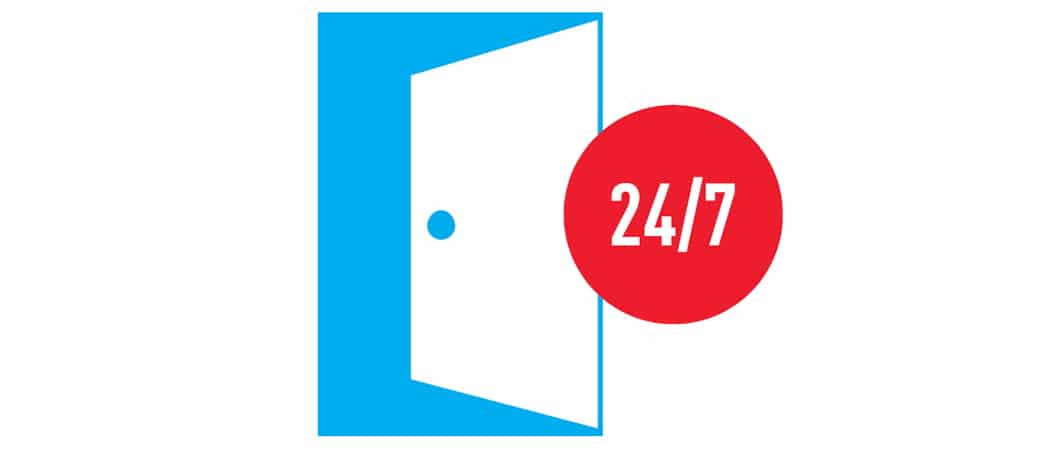TEXT DONAL RUANE Y VIOLETA MATEO | IMAGES MAPFRE, ISTOCK
We start with some bad news: when asked to depict a scientist, only three out of every ten children draw a woman. The good news is that this percentage represents a sharp increase when compared with previous eras: in the 1960s and 70s, when given this task, nearly 5,000 boys and girls in the United States drew a man, with less than one percent drawing a woman.
The COVID-19 pandemic has brought science into our homes, the overriding topic of our daily conversations. Our TVs, smartphones and tablets are constantly offering us an endless stream of scientific information about this virus. And the race to discover an effective vaccine produces a certain sensation of adventure and celerity in a field that we have often, albeit unjustly, considered somewhat dry. This renewed focus on science should translate into a surge in interest in scientific careers. And certainly, if young girls with a scientific vocation could see how many prestigious women around the world are at the forefront of the fight against this menace, they would surely not hesitate to join their ranks.
We are at the dawn of the Fourth Industrial Revolution, the scope and magnitude of which will radically alter our lives in terms we never believed possible. The physical and digital spheres are increasingly merging into one, and the near future is full of tremendous opportunities, as well as highly significant challenges. Preparing ourselves properly for such a profound change calls for a monumental effort to fully integrate and include everyone. Without women, we would be working with half of the available resources, half the energy, and half the imagination. And that means we could only achieve half the results.
At high school, when considering which career to choose, many girls cannot find female models that might inspire them to pursue a STEM (Science, Technology, Engineering and Mathematics) career. We have looked around here in MAPFRE and it was easy to find some of these women who are clearly exemplary role models. We are proud to share their reflections with you
Equality at work, also at home?
When writing this article was already underway, the COVID-19 crisis took us all by surprise and forced most of our employees to stay home and telework. We asked our STEAM professionals about this new experience of balancing their work with other household tasks.
Logically enough, given the particular circumstances of each of our protagonists, their replies were all rather different. The positive aspect is that this confinement can serve as an exercise in living together, exercising patience, tolerance and sacrifice, so as to draw out the best in each of us as fathers, mothers, children, partners, roommates, etc. It is a great opportunity for us to learn to share and for everyone to do so from now on.

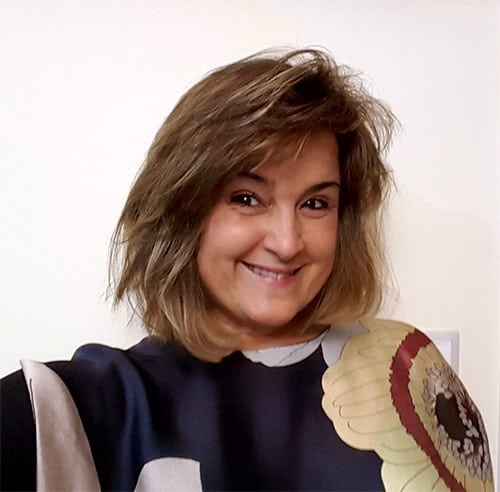
Carmen Grau
Graduated in Medicine and Surgery, specialist in Family and Community Medicine. Expert doctor in MAPFRE ASISTENCIA
Think what you are, what you can do, and how far you want to go; that way, no door will be closed to you
The first of our protagonists, Carmen Grau, received her degree in Medicine and Surgery from the University of Alcalá de Henares, is a specialist in Family and Community Medicine, and currently works as an expert physician in MAPFRE ASISTENCIA. “I’m part of the Operations team, drafting or updating policies, standards and protocols, offering support in complex medical cases, medical transfers or benefits to patients, as well as supporting healthcare teams all over the world.”
Carmen showed great interest in science from a very young age: “While some of my colleagues were scared away by subjects where we could see how cells worked under a microscope, study the different organs and their functions in the body, learn what they were good for… my curiosity about all those things was growing,” she tells us with humor. Moreover, she had the support of her mother, who was her role model: “Despite having everything against her, she took five degree courses and made her dream come true: having her own advertising agency and being a journalist, writing for a Madrid newspaper.” For this reason, the advice she gave her was: “Think what you are, what you can do, and how far you want to go; that way, no door will be closed to you,” and Carmen has applied this to every aspect of her life, both professional and personal.
Carmen recalls: “Clearly, in the past women chose certain professions because, most of the time, there didn’t even exist the option to consider studying or learning others. There were indeed stereotypes; for example, the vast majority studying nursing and pharmacy were women. It was rare to see a female judge or aerospace engineer, given that almost no woman saw this as a possibility. It was not until several years later that things began to change for the better, in the field of medicine too. What I remember is that most of the specialties in the hospital were practiced by male physicians. As the years passed, this gradually changed and now, in almost every specialty, albeit with some exceptions, women are in the majority.”
As professions with demanding continuous training requirements, Carmen Grau underscores the fact that: “MAPFRE has always placed its trust in me and given me the chance to take the training courses I needed, improve my language skills and learn many new things unknown to me before coming here, such as the world of insurance. I had always worked in the emergency medicine sector, but I’ve had the opportunity here to expand my knowledge in various aspects of both my work and my life.”
Her advice for young boys and girls with a clear scientific vocation is to follow their calling. “There’s nothing more satisfying on a personal level than doing and working in what you like the most. Yet you must never forget that this is a career that demands your full dedication and endeavor, and that it’s essential to remain actively engaged and well-trained throughout your life.”
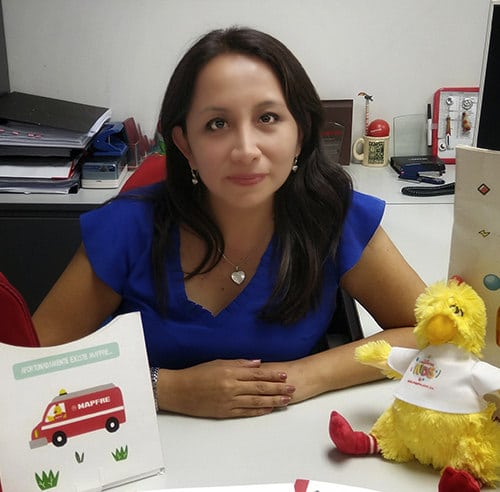
Carolina Aquiño
Computer Engineer with a Master’s Degree in Data Science. Head of the CRM client management platform at MAPFRE PERÚ
…stereotypical assumptions that question whether a woman can be good with figures. While this is sometimes stated in a highly subtle or, even, involuntary manner, the notion gets across to young girls. They then start manifesting insecurity in their abilities and, years later, this translates into a low percentage of female applications for careers such as engineering
From her childhood and adolescent days, she recalls an interest in science in general and, especially, in deciphering “the basic principles of programming with a language called Logo, as well as wanting to know how the video games that entertained me so much had been created.”
When asked why many girls tend to study certain subjects and not others, Carolina believes that: “It’s a cultural thing that, both in my country and the rest of the world, is pretty deep-rooted. A technical career is generally viewed as something extremely complicated, and that produces insecurity. And there are also stereotypical assumptions that question whether a woman can be good with figures. While this is sometimes stated in a highly subtle or, even, involuntary manner, the notion gets across to young girls. They then start manifesting insecurity in their abilities and, years later, this translates into a low percentage of female applications for careers such as engineering. I believe most of them prefer not to go against the tide and thus avoid the difficulty of having to demonstrate their skills in this area.” However, she did not have that problem, as her family was instrumental in bolstering her self-esteem, “that’s why I never hesitated about choosing an engineering course and undertaking to complete it. The best advice they gave me was that I should always strive to achieve what I want and have confidence in my abilities.”
This is the same advice she now gives to young girls — that they should not be afraid of being the exception to an unfounded rule that still exists in society. “We women have the same abilities as men in every field. We mustn’t underestimate our intelligence. Moreover, there is an ever-increasing demand these days for profiles with technological and data skills and, if there are no women keen to study these areas, we will be relegated to more menial jobs in the near future.”
As for the support MAPFRE has offered her, as well as enabling her to develop her initiatives, Carolina would like to highlight: “The creation of the Women’s Leadership Network, which promotes our personal and professional development through the training and coaching programs we regularly receive. In this sense, I believe that those of us who form part of this network and have taken up a STEAM career can help spark interest in these professions among young and adolescent girls through specifically targeted talks and workshops. Our experience thus serves to guide those girls who may have doubts.”
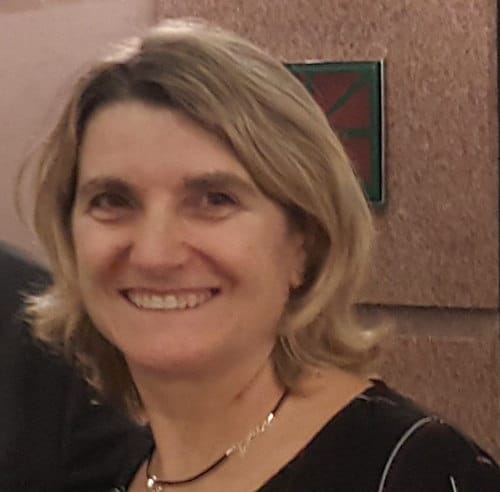
Elena Manrique
PFC Computer Engineer at the European Center for Nuclear Research (CERN). Responsible for the development and maintenance of TronWeb and Guidewire, at MAPFRE INSURANCE
Once you get there, what matters is talent, not gender. I believe companies are more efficient if they have gender diversity
“Since I was little, I’ve always been more interested in science than the arts; I preferred to seek solutions by reasoning rather than by memorizing. I was more attracted to activities that allowed me to develop practical aspects, experiment and be creative. What’s more, I was lucky enough to have the support of my family in going for a technological career.” She was therefore not influenced by certain stereotypes she admits might have existed at that time: “before, we had little information when it came to choosing university studies, so we were influenced by our family and schoolteachers. And, to some extent, by vocation and personal motivation: the girls chose careers in experimental and social sciences, or the legal and health sectors, with the idea of helping others; while the boys chose more technical studies. I feel we all have the same opportunities now.”
Elena also underscores the influence of her mother, who always supported her: “She told me to make my own decisions and work so that I wouldn’t have to rely on anyone. Although her mother had university studies, she only worked until she married, had her first child and devoted herself full-time to her family. This was because, unless it was essential for economic reasons, at that time it was frowned upon for a woman to go out to work.”
She believes that, in order to increase the presence of women in the computer and programming sectors, “it’s important to start with education, both in schools and within the family.” But she wants to stress the positive side: “Once you get there, what matters is talent, not gender. I believe companies are more efficient if they have gender diversity.”
To encourage all young people who have an inclination for science subjects, she insists that they are always searching for new processes and activities, because the world is constantly changing. “Countries that do not produce advances in technology and science are destined to live in poverty. In the technological and scientific fields, there will always be work and you will be constantly learning new things. It’s not a monotonous job.”
As regards her professional development, Elena is highly satisfied. “MAPFRE has given me the opportunity to learn different business and cultural perspectives. I’ve been able to travel throughout Latin America, Portugal, Malta and Turkey, and now I’m in Boston. Every country has its business style and, when we traveled to a new country, I always learned new things. Continuing to acquire knowledge and further communication and training enriches people and enhances their attitude and motivation.”
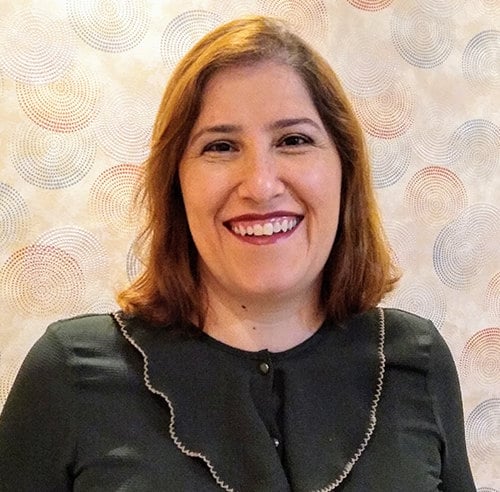
Helga Tomagnini
civil engineering, specializing in Insurance, Risk Management and Internal Control. Superintendent of Business Strategy and Risk Engineering at MAPFRE BRAZIL’s Business Management.
I went to college from 1992 to 1997 and there were three women in my class, with nearly 50 men. But that proportion is much more balanced today, and the labor market now knows that gender has no impact on professionalism
She ended up in this career a little by chance, as she did not get the grades in the college entrance exams for her first choice. However, there was an opening for civil engineering, so she tried it, liked it and no longer wanted to change. And that despite the fact that she had to work during the day and study at night, which meant six years of university education, somewhat longer than usual in her country. The fact is that she always liked it: “My interest in science stems from my childhood. I loved discovering how things worked and what they were made of.”
She believes people sometimes choose careers not just for personal preferences, but also for the influence of friends or family. For this reason, she tells us the best advice ever was her father’s, when he told her that it did not matter what career she chose, so long as she did her best in whatever profession it was.
Her personal experience allows her to see that much progress has been made in terms of the stereotypes young girls sometimes suffer from: “In Civil Engineering, there’s still a certain preference for the boys. I went to college from 1992 to 1997 and there were three women in my class, with nearly 50 men. But that proportion is much more balanced today, and the labor market now knows that gender has no impact on professionalism.”
So, she would offer all girls her father’s advice: choose the career you identify most with and give it your best shot. And she would add, keep constantly up to date, open to the digital world in which we live, have the humility to always learn and the generosity to share knowledge and experiences.
Helga has never lacked development opportunities at MAPFRE: “All the training received, internal mobility opportunities and even day-to-day challenges mean that we are constantly in improvement mode.”
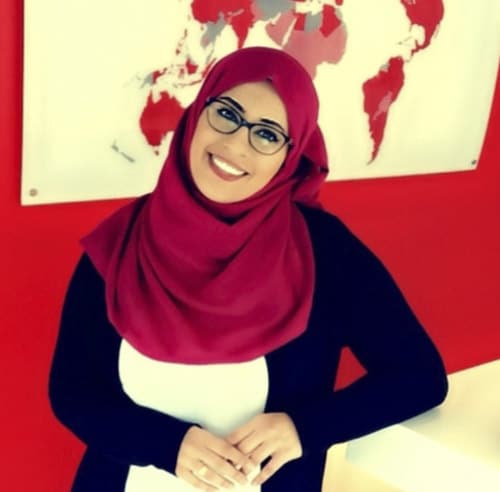
Shurooq Al-Kurdi
Programming engineer. She works in the IT department at MAPFRE ASSISTANCE in Jordan
Society now looks at females differently, especially since pioneering women have shown that they can access and thrive in certain professions that they were previously deemed incapable of exercising.
She does agree with other colleagues here when she explains: “Women have always been seen in certain roles and been influenced by society and their family to choose certain careers. From a very young age, girls were taught that they were limited to these traditional studies. But, of course, everything has changed. Society now looks at females differently, especially since pioneering women have shown that they can access and thrive in certain professions that they were previously deemed incapable of exercising.”
Throughout her career, Shurooq has always received good advice, but she would underscore the following: “Good things don’t come easily, always try to succeed, and don’t worry about mistakes. The time will come when you achieve your goal, and all your efforts will have been worthwhile.”
She believes that, for young girls who want to pursue a technical career, it is important “to have models to follow, and, moreover, these role models can also inspire young women to see that nothing is impossible in life. The more we are, the better! And I’d also tell them that it’s important to pursue your dream, not give up, and not believe anyone who tells you otherwise.”
She does not believe that all gender stereotypes have disappeared in her profession, although she does feel things are not the same as some time ago.
Shurooq is very grateful to her superiors in MAPFRE for their “support and guidance as regards promotion within this company and advancing my career, from my position as a Call Center agent to being in charge of the Phoenix program in the IT department. I really believe that MAPFRE offers an environment of support and motivation to promote talent, especially for women, and motivate us to gain promotion within this organization.”
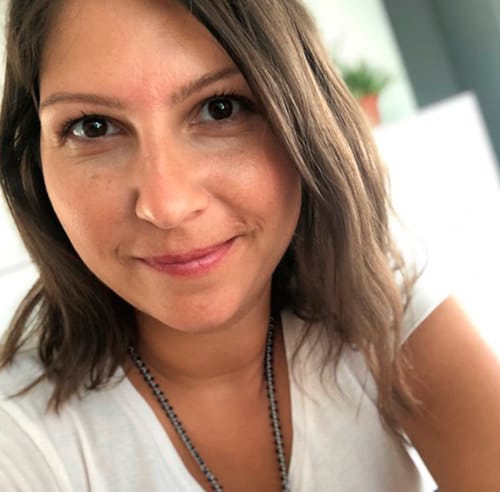
Sezen Aksoy
Expert in statistics and mathematics, works in the actuarial area of MAPFRE SIGORTA
Little by little, women have begun to gain independence from men and, over time, they will realize their worth and start standing out, and the model of the successful woman will expand
Our expert in statistics and mathematics is Sezen Aksoy, who works in the actuarial area of MAPFRE SIGORTA in Turkey. Sezen confesses that, even though she studied statistics at university, “it wasn’t really a conscious choice. I thought it would be fun just because I liked playing with numbers and, fortunately, it turned out just as I expected.”
Sezen thinks that the situation of women in certain careers has been changing in recent years: “If we look at the past, women remained well in the background and were not given the opportunity to practice professions that might interest them. But I’m of the opinion that, over the years, thanks to rising self-esteem and success, women have shown that they can turn their hand to anything. We’re experiencing really significant changes and, over time, there will be ever more women in these positions.”
From her standpoint, “it’s important, first of all, to always appear confident, even if that’s not how we feel, to be patient and never give up. And secondly, strive to do something that sets us apart from the rest, however small the difference may be. I believe everyone should have a distinctive characteristic and do things differently.”
While she states that the role of women in the labor market and the belief and confidence in them are ever growing, “in my view they are still not on a par with men. I therefore feel that there are still not enough women with a successful professional career, and they often play a supporting role to the men. Little by little, women have begun to gain independence from men and, over time, they will realize their worth and start standing out, and the model of the successful woman will expand.”
For Sezen, there are stereotypes in Turkey that still remain firmly in place. “Some men, especially the elderly, have preconceived prejudices and notions about women, leading to them being forced to work in difficult conditions.”
The advice she gives to all young people in general is that they must have faith in themselves and not be driven off the course they have chosen. “In my opinion, a person’s most important traits are self-esteem, naturalness, singularity, and tenacity.”
She feels that MAPFRE is applying correct, fair criteria when recruiting talent and suggests that, once inside the company, it should also devote a lot of energy to making the new employee feel special and happy.

International Women’s Day
On the occasion of International Women’s Day, on March 8, MAPFRE devoted a full week to recognizing women in a totally different fashion: giving voice to those who work in MAPFRE and, in particular, those who do so in the STEAM sectors.
To this end, the company dedicated each of the five days that week to a female colleague to relate her experience: Luisa Capdevila (Science), Mercedes Domínguez (Technology), Mireia Rojo (Engineering), Nadia Arroyo (Arts) y Penélope Garzón (Mathematics), rounding off the week with a conversation in which all five reflected on what led them to choose a STEAM career, what role models they had or what advice they would give young girls for them to choose one of these professions..
For gender equality
For many years, MAPFRE has been working toward equal opportunities for women and men, given that, in MAPFRE, gender equality refers to equal rights, responsibilities and opportunities for both women and men. As a result, our company establishes action plans that promote the effective equality of men and women, guaranteeing their professional development with equal opportunities, as stated in our Diversity and Equal Opportunities Policy.
Recently, MAPFRE signed up to:
- The UN Women’s Empowerment Principles (WEPs), a new milestone in our strong commitment to equality and a clear reflection of MAPFRE’s spirit as a diverse, inclusive company, as Antonio Huertas explains: “Signing up to the UN’s WEPs will help us maximize all the female talentwe have at our disposal, and continue boosting initiatives for the advancement of women within the company and the total elimination of gender gaps.” UN Women is the United Nations organization dedicated to promoting gender equality and the empowerment of women.
- And the Target Gender Equality initiative of the United Nations Global Compact, which is the equality initiative at the highest international level in which we can be represented.
By participating in this initiative, which forms part of our 2019-2021 Diversity Strategy, MAPFRE will be able to strengthen its contribution to fulfilling the Fifth Sustainable Development Goal (Gender Equality), whose objective is to achieve gender equality and empower all women and young girls.

